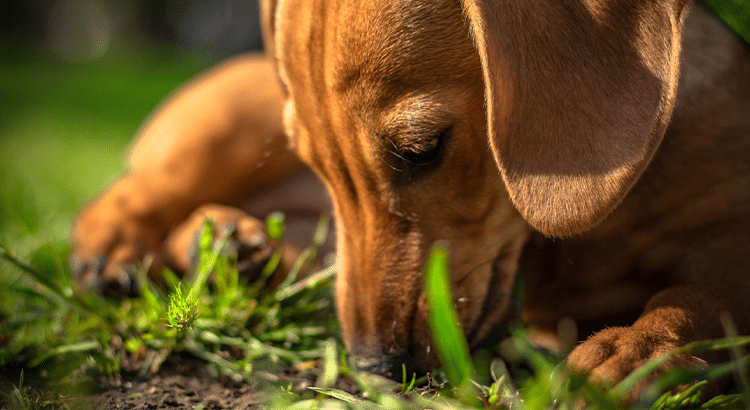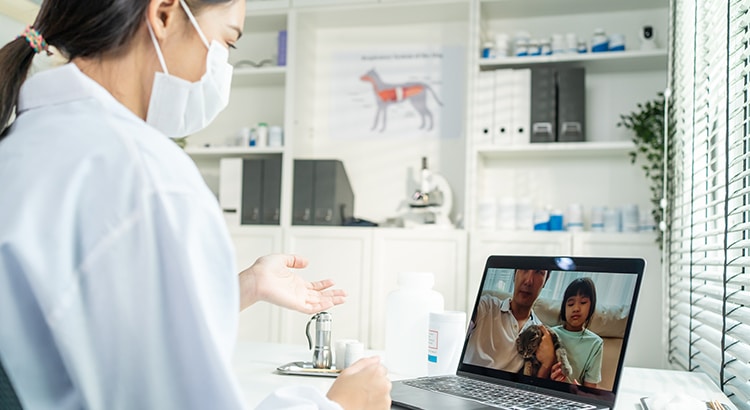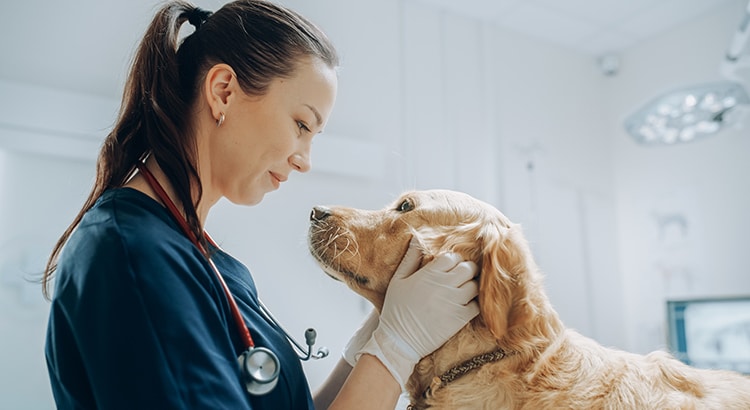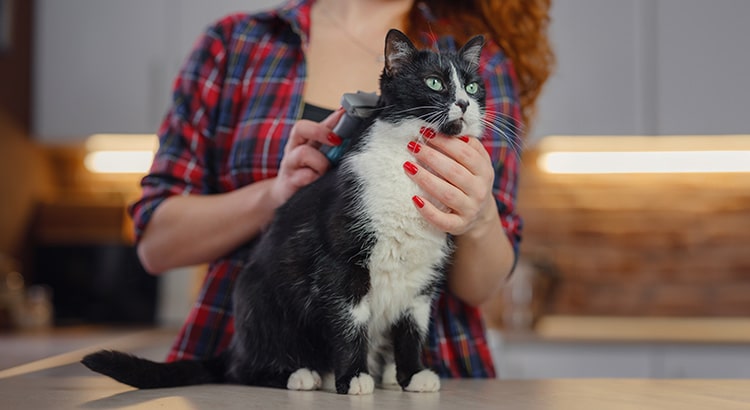
Pups can have some pretty repulsive habits: drinking from the toilet, sniffing other dogs butts, eating trash, but eating poop? The line has to be drawn somewhere!
Why, oh why, does my dog eat poop? Between all the delicious bites of watermelon and a French fry here and there she gets, I don’t know how eating poop has been ranked as one of her top preferences. While I have heard it may be due to something lacking in her diet, let’s find out more about what research says?
The American Kennel Club published an article identifying the scientific name for this habit: coprophagia (kop-ruh-fey-jee-uh).
The Big Question: WHY Coprophagia?
Believe it or not, dogs eating poop is normal under two circumstances:
- 1Nursing female dogs. These pups eat the poop from their babies to keep their dens clean and to hide their scents from prey.
- 2Eating the poop of another species. Eating the stool of other animals, such as horses or cats, contains nutrients that can be beneficial (but it can also contain harmful bacteria, so it’s best to discourage this behavior).
So, why do dogs have coprophagia outside of each of these scenarios?
Medical Reasons
There could be a medical condition contributing to their ingestion of stool like enzyme deficiency or pancreatic insufficiency. Dr. Becker also states intestinal malabsorption and GI parasites are common medical reasons for underlying coprophagia.
Exocrine pancreatic insufficiency (EPI) is the inability to produce sufficient pancreatic enzymes to digest fat, carbohydrates, and proteins. This difficulty in digestion leads to poor absorption of nutrients which commonly causes weight loss despite a normal or increased appetite. EPI stabilization consists of a highly digestible, low fat diet together with a pancreatic enzyme replacement.
Symptoms of exocrine pancreatic insufficiency include:
- 1Weight loss without change to appetite
- 2Chronic diarrhea/loose stools
- 3Larger than normal stool size/more fat in the stool
- 4Excessive flatulence/gurgling noises in the stomach
- 5Loss of muscle mass
- 6Poor quality skin and coat
A deficiency in vitamin B has also been a theory linked to why pups ingest poop.
Parasites such as hookworms, roundworms and tapeworms attach themselves to the digestive walls and feed off of the contents inside a dog’s intestines. As a result, these parasitic worms remove the nutrients from digested foods that pups need before they have a chance to reap the benefits.
Adult stool eaters may have a hydrochloric acid deficiency. There is a chance that the hydrochloric acid is not breaking down protein efficiently enough during the digestive process. This ultimately causes a trace mineral deficiency that will lead to the consumption of poop, grass or even plastic.
Other medical conditions causing increase in appetite include diabetes, Cushing’s, and thyroid disease.
Facts Around Dogs Who Have Coprophagia
How to Get Your Dog to STOP!!
- 1Vitamin Supplementation- a dog multivitamin can be helpful in hitting all areas of deficiency and for the overall health of your pet
- 2Enzyme Supplementation- probiotic and prebiotic enzyme supplements can assist with gut health and the absorption of nutrients
- 3Taste-Aversion Products- adding peppermint or parsley leaves provide fresh breath and also make poop less appealing for consumption
- 4Feed a Good Diet of Non-Processed Food- it is ideal to feed your pup a homemade raw or cooked diet and avoid processed kibble.
- 5Keep Your Pups Brain Engaged- prevent boredom by providing toys for your pet, taking them for a walk and showing them attention
So, if your furry friend has shown interest in, or is indulging is some poopy treats, you now know ways to supplement their diet and health in attempt to deter this behavior. At any point you have questions and want to talk to a vet about coprophagia, our Pin Paws Plus membership gives access to whiskerDocs, 24/7 pet telehealth. Click on this link to learn more today: Pin Paws Plus




